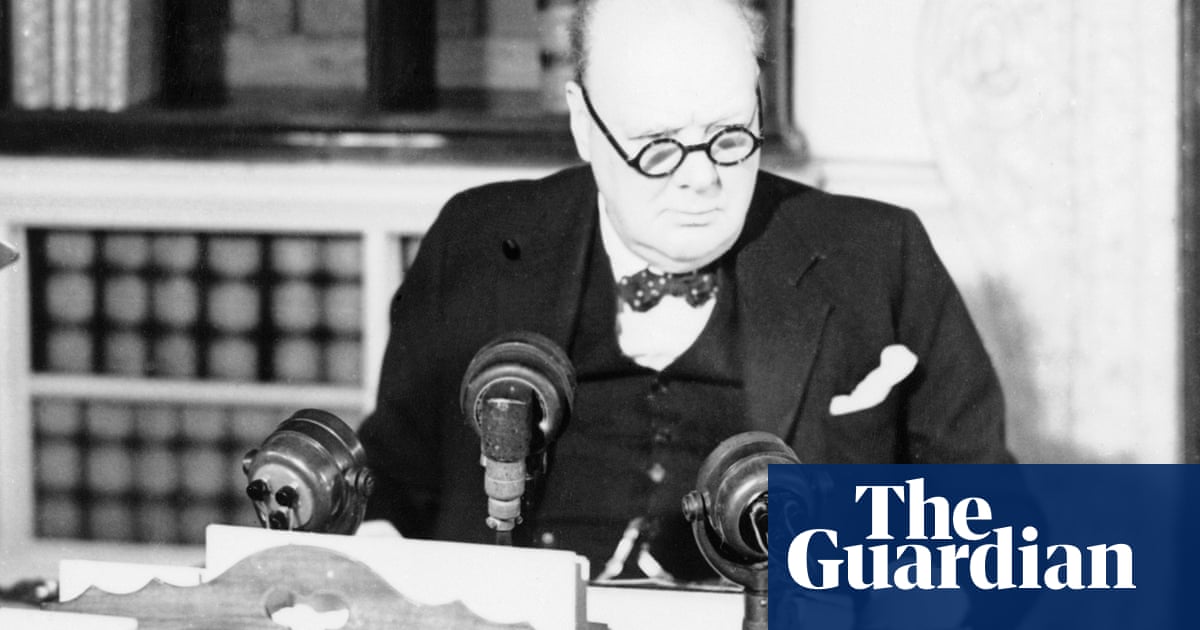Eighty years after Winston Churchill addressed the nation from Downing Street with the words “This is your victory!” a recitation of his famousVE Dayspeech will be broadcast as the nation commemorates the day the Allies formally accepted Germany’s surrender in 1945.
Events across four days of national UK commemorations include a military procession through centralLondonon Monday, with tens of thousands expected to line the route from Parliament Square to Buckingham Palace, and a service at Westminster Abbey on the 8 May anniversary on Thursday.
The actorTimothy Spall, who portrayed Churchill in the film The King’s Speech, will read extracts from the wartime prime minister’s VE Day broadcast on Monday, as the Normandy veteran Alan Kennett, 100, formally starts the procession after being handed the Commonwealth War Graves Torch for Peace.
More than 1,300 members of the armed forces and youth groups will march down Whitehall, through Admiralty Arch and up the Mall towards Buckingham Palace watched by the king and queen, senior royals, the prime minister and a number of second world war veterans.
Members of the royal family will then watch a flypast from the palace balcony where, 80 years ago, George VI, Queen Elizabeth the Queen Mother and the princesses Elizabeth and Margaret made multiple appearances before a cheering crowd. Later, Charles and Camilla will host a tea party reception for about 50 veterans and members of the second world war generation at Buckingham Palace.
The Cenotaph, the nation’s focal point of remembrance, will be bedecked in union flags for the duration of the four-day commemorations, echoing the 1920 unveiling of the monument to the fallen.
VE Day 80 street parties, barbecues and get-togethers have been organised by communities across the country, including a party on HMS Belfast, from which were fired some of the opening shots on D-day in 1944 and which protected Arctic convoys during the war.
An installation of ceramic poppieswill return to the Tower of Londonon Tuesday, comprising 30,000 of the original poppies from the 2014 display. On Tuesday evening, hundreds of buildings across the country will be lit up, including Buckingham Palace, 10 Downing Street and the Houses of Parliament. A Scotland Salutes VE80 concert will take place at Usher Hall in Edinburgh.
On Wednesday, the Parliament Choir will host a Victory in Europe Day anniversary concert in Westminster Hall at the Palace of Westminster. At a VE Day event at the Imperial War Museum North in Greater Manchester, jointly produced by the IWM and the National Theatre, a performance will be based on wartime letters submitted by members of the public. A national service of remembrance will be held at Llandaff Cathedral in Cardiff.
The actual anniversary on Thursday will be marked with a service at Westminster Abbey, to begin with a national two-minute silence. Commemoration events will conclude with a concert at Horse Guards Parade attended by about 10,000 people. The concert will feature stars of stage and screen including John Newman and dames Joan Collins, Mary Berry and Sheila Hancock, as well as military musicians, and tell the story of victory and the legacy of the second world war in Europe.
Looking ahead to the commemorations, the prime minister, Keir Starmer, said: “This 80th anniversary is a moment of national unity. A time to celebrate that hard-won peace, honour the memory of those who lost their lives, and remember the sacrifices made by so many to secure our freedom.
“Their legacy lives on today in how we stand together in defence of the values they fought for and which bind us together as a nation. This week, we come together to salute their service.”
Sign up toFirst Edition
Our morning email breaks down the key stories of the day, telling you what’s happening and why it matters
after newsletter promotion
Victory in Europe Day, celebrated on 8 May each year, marks the day the Allies formally accepted Germany’s surrender in 1945. With German surrender eagerly anticipated, many had already draped their houses with bunting and bought union flags.
On VE Day 1945, the then Princess Elizabeth, dressed in her Auxiliary Territorial Service uniform, slipped out of the palace and joined the cheering crowds outside incognito. She once described it as “one of the most memorable nights of my life”. This will be the first significant VE Day anniversary without her.
Lisa Nandy, the culture secretary, said: “80 years ago millions of people celebrated the end of the second world war in Europe. This week, we will recreate this moment across towns and cities, in our homes, in pubs and on our streets.
“We must do all we can to ensure that the stories and memories of this period in our history are not forgotten. We must not forget the hardships, the heroics and the millions who lost their lives.
“We are here because of the sacrifices they made and the horrors they endured. This week, I urge the nation to come together and send a powerful message: we will remember them.”
